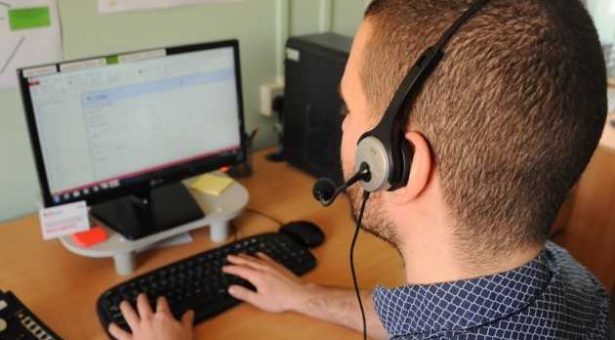Alice gets a taste of the third sector

Alice Dore, a student in the School of Biology at the University of East Anglia, wanted to gain experience of working in the third sector and to expand her analysis and communications skills, and so used her PIPS to work towards these aims. Alice consulted the list of ‘warm’ leads held on the MyCareerCentral database and found an opportunity with Norwich and Central Norfolk Mind, a mental health charity working to reduce the stigma associated with mental health, supporting people in their recovery and championing better services for those with mental health problems.
Alice undertook her placement during the second Year of her PhD, which she found to work well. “I had much less training and fewer induction tasks to work around in second year compared to first year. I had reached a natural pause in my research and felt that I was ready at that point for a change of scene”, reflects Alice.
Alice’s tasks during the internship included collating information from client referral forms and contact records into a single, centralised database. Alice also designed and conducted a phone survey of former service users to obtain their feedback. The phone survey and qualitative analysis were challenging because they were outside of Alice’s comfort zone, but she enjoyed the challenge. “I quantitatively and qualitatively analysed both these datasets, then wrote up and discussed my findings in a service evaluation, with applicability to best practice recommendations and funding applications”, says Alice. During the internship Alice also shadowed support workers on meetings with service users, and completed training in professional boundaries, safeguarding adults and safety at work. Alice valued the opportunity to work in a vocational and applied setting, and the communications skills that she gained.
Alice gained a variety of skills during her placement, including increasing her personal effectiveness and gaining in self-confidence by being able to adapt to new roles and responsibilities, and through the opportunity to see the direct applications of the work she was doing. Alice’s PIPS was very different to her PhD research, so there was significant opportunity to gain knowledge of a new field and new analysis. Alice also developed her communication skills as well as her creativity and problem solving skills by using initiative to adapt to these new challenges. Through working independently for a substantial portion of her PIPS Alice also had a good opportunity to develop her organisation and research management. Alice also gained some experience relevant to funding applications because evaluating a service involved considering and describing its specific impact and value, which will be used to apply for funding to expand the service.
The placement affirmed Alice’s aspiration to work in the third sector, and gave her a more specific idea of the roles that she is interested in. The mentor she was paired with by UEA was also excellent at helping her to plan her career. Overall, Alice rates her PIPS placement experience as a very positive one and she advises future PIPS students to get as much out of the experience as they can by taking advantage of opportunities and being willing to take on responsibility.
Benjamin Marshall, service manager for Norwich and Central Norfolk Mind and Alice’s supervisor for the PIPS project within the charity, adds “Alice’s excellent work provided us with a really rigorous and insightful service review, helping the organisation to reflect on our practice at a really key time for a high-impact project. She was a pleasure to work with and went to great effort to ‘get’ the world of applied mental health support”.
